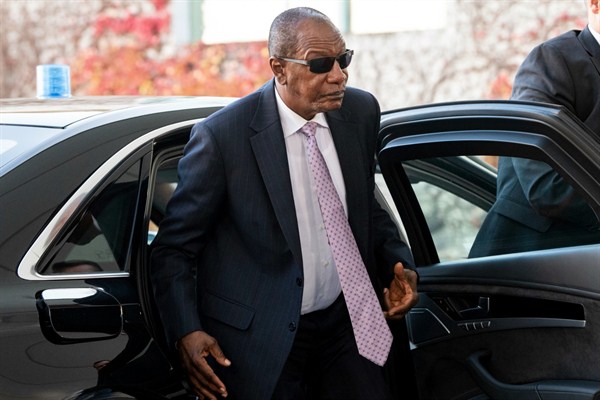Guinean President Alpha Conde announced plans in December to replace the country’s constitution via a referendum, a move that critics say will allow him to stay in power beyond the current two-term limit. Guinea’s existing constitution requires the 81-year-old Conde, who was first elected in 2010, to step down after finishing his second and final term later this year. But the proposed draft document is replete with vague language on term limits that would likely allow him to run for reelection. Conde has not stated explicitly whether he plans to do so, but many Guineans believe he is clearing a path to stay in power.
Over the past year, opposition parties and a range of protesters across the country have organized demonstrations against that prospect. At least 20 demonstrators and one police officer have been killed in clashes between protesters and security forces since October. With Conde’s announcement last month, Guinea stands at the brink of further violence and a constitutional crisis that could stifle its decades-long crawl toward democracy.
The path forward is unclear, as Guinea’s current constitution, which was enacted by a transitional military council in 2010, sets out procedures for amending it but not for replacing it. It is unclear what role institutions like the legislature and the Constitutional Court would play in ratifying a new constitution or even blocking a potential third Conde term through other means, such as impeachment. Conde’s ruling party, the Rally of the Guinean People, or RPG, currently holds a plurality of seats, while the two main opposition parties have a combined majority. Normally that would be enough to block an amendment to the constitution, but the president of the National Assembly has approved the new draft constitution, so Conde claims he has the necessary support to move forward. To circumvent a battle with a potentially hostile legislature, Conde has called for a public referendum to be held at some point in the future.

